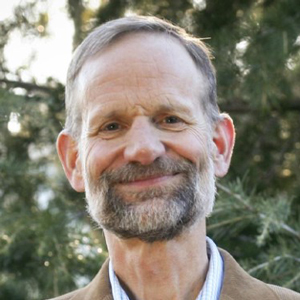
Mike Toney
Professor of Chemical & Biological Engineering and Materials Science & Engineering
University of Colorado, Boulder
Insights into battery operation and degradation through X-ray scattering
November 7
4:00–5:00 p.m.
Physics/Astronomy Auditorium A114
Abstract
Electrochemical energy storage is an enabling technology as humanity transitions to a carbon neutral economy. While Li-ion batteries are presently the dominant technology, a diversity of energy storage needs demands a diversity of energy storage technologies. My research group is focused on enabling the creation of various types of batteries through an understanding of their operation and degradation modes. This is achieved using several operando related X-ray based methodologies coupled with electrochemistry.
In this talk I will discuss several vignettes related to our research including (1) establishing X-ray Photon Correlation Spectroscopy (XPCS) as a method of quantifying ion and electrolyte velocities in polymer solid-state electrolytes, (2) showing the Na (Sodium) storage mechanisms and heterogeneous nanopore filling in hard-carbon anodes for Na-ion batteries, and (3) determining that the degradation pathways in Li-ion batteries (under extreme fast charging) involved predominately heterogenous Li-metal plating in full cells with some contribution from additional solid-electrolyte layer growth.
Bio
Mike Toney is a professor of chemical & biological engineering and materials science & engineering at CU Boulder. He received his B.S. from Caltech and his Ph.D. in physics from the University of Washington. Professor Toney is also a Fellow of the Renewable and Sustainable Energy Institute (RASEI), an APS Fellow (Advance Photon Source, U.S. Dept. of Energy), as well as a Thomson Reuters highly cited researcher in materials sciences.
Following a NATO Postdoctoral Fellowship, Toney joined the IBM Research Division to focus on the use of X-ray scattering methods for structure determination of polymer thin films and interfaces. After working at the Stanford Synchrotron Radiation Lightsource (SSRL), he joined CU Boulder in 2020. Toney is a pioneer in the use of X-ray diffraction for in-situ investigations of atomic structure at electrified interfaces as well as a innovator in energy storage and the molecular structure of organic thin films.